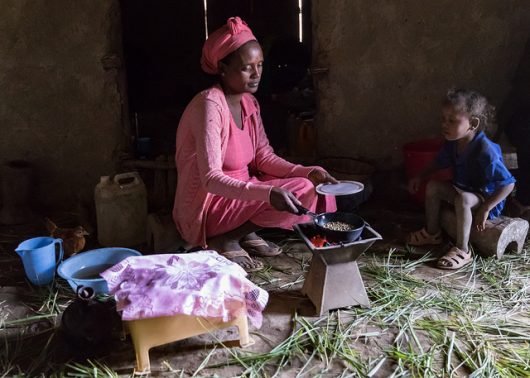10 Highly Important Facts About Human Rights in Ethiopia

Ethiopia, located at the Horn of Africa, is home to over 100 million inhabitants and is in dire need of human rights reform. Prolonged states of emergency, detention centers and undemocratic laws are leading to notable atrocities within the nation. The government, however, seems to be paying attention to this need and is making progress on certain fronts. As atrocities continue, international organizations are becoming more vocal regarding these issues. The following are 10 important facts about human rights in Ethiopia.
10 Facts About Human Rights in Ethiopia
- Ethiopia does not have an open political space. The ruling coalition in Ethiopia controls all federal and parliamentary seats. Nongovernmental organizations, independent media and political parties are hard to come by and are being increasingly cracked down by the government.
- Violence and unrest have recently characterized the nation. Following mass protests among Ethiopia’s largest ethnic group, the Oromo, the government imposed a state of emergency in October 2016 which continued until August 2017. State crackdown ensued, including a militarized response to anti-government protests, mass detention and restrictions on freedom of expression. Another state of emergency was announced in February 2018 and continued for four months.
- So-called “rehabilitation camps” are committing abuses. During the state of emergency, over 20,000 Ethiopian citizens have were detained following political unrest in the Oromia and Amhara regions. Lack of medical assistance, restriction on family visits, torture methods and other inhuman practices are a staple of these centers.
- Violence against women is a grave concern. Female genital mutilation, which is condemned by the United Nations, is still popular. The national prevalence of the practice, which leads to infection, scarring and sometimes death, is around 65 percent. However, changing attitudes regarding the practice has driven down its popularity. The practice was nearly uniform just a decade ago.
- Children are facing unique dangers. Forced labor, notably domestic work and textile cutting, is particularly persistent among young people. Children are vulnerable to this practice as the state does not mandate education to a certain age. In 2016, however, the government took steps to reduce child labor, putting legislation in place that prohibits employment agencies from hiring those under the age of adulthood. In addition, the Ministry of Labor and Social Affairs was granted the ability to revoke licenses of agencies that disobey the regulation.
- The Ethiopian state is not proactive in mitigating abuses. The government has not yet allowed the United Nations’ Working Group on Arbitrary Detention to investigate human rights violations despite appeals from 2005, 2007, 2009, 2011 and 2015. The Charities and Societies Proclamation, adopted in 2009, severely confines the effectiveness of human rights organizations. The law forces organizations to register in one of three categories: Ethiopian Charities or Societies, Ethiopian Resident Charities or Societies or Foreign Charities, as well as limits their administrative work to 30 percent of their budget.
- The independent media in Ethiopia is being threatened. Journalists are facing a repressive environment in Ethiopia. In April 2017, two of the country’s main television stations, Ethiopian Satellite Television and the Oromia Media Network, were charged under Ethiopia’s repressive anti-terrorism law. In addition, the government has followed the path of other repressive nations, such as Iran, and has gone on to restrict social media in the country.
- Somali and Oromia Region’s Liyu police has been committing serious human rights violations. Formed following an attack by the Ogaden National Liberation Front rebel group, the police force has been accused of executions, rape and forced displacement. In fact, Amnesty International has urged the Ethiopian government to disband the unit.
- Ethiopia has a long history of an open-door asylum policy for refugees. Ethiopia’s policies toward refugees allow humanitarian protection for hundreds of thousands of sufferers. In September 2017, the nation hosted 883,546 refugees who were held in nearly 30 camps. The nation is also a participant of the Comprehensive Refugee Response Framework, which calls for increased support for asylum seekers and promotes inclusion.
- Ethiopia is a member of the United Nations Security Council and the United Nations Human Rights Council. Although international organizations have raised concerns about the situation surrounding human rights in the country for years, Ethiopia was elected to the Human Rights Council by the U.N. General Assembly in 2012. The Human Rights Council is tasked with investigating and addressing human rights abuses.
Human rights violations are a major concern which the international community should pay special attention to. In Ethiopia, danger, discrimination and violence are leading to tragedies across the nation. However, the government is a member of the United Nations Human Rights Council and has made headway in becoming a more welcoming nation for refugees. Still, international and domestic state actors must work together to make much-needed reforms regarding human rights in Ethiopia.
– Isabel Bysiewicz
Photo: Flickr
